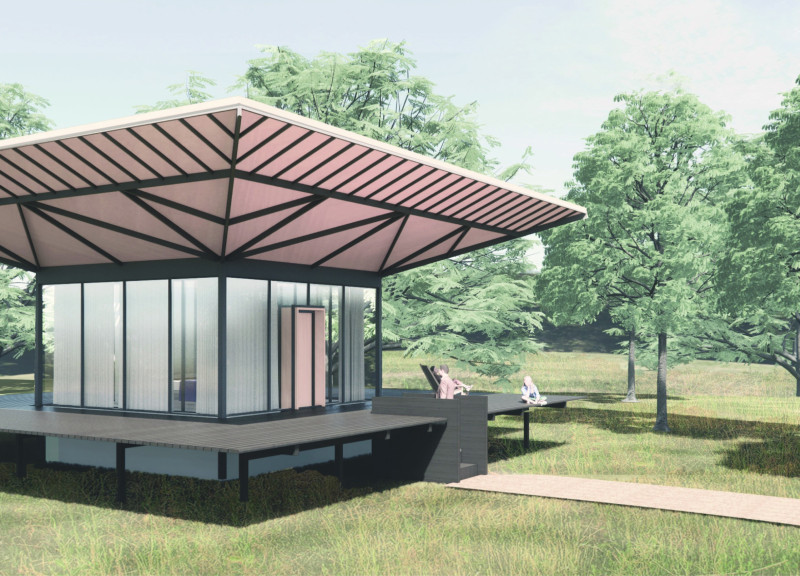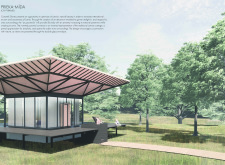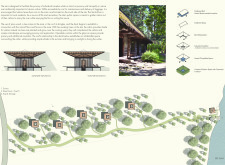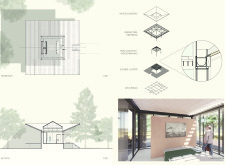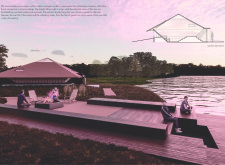5 key facts about this project
The "Joy Pyramid," developed by Caramel Shores, is located in the scenic landscape of Latvia. The design brings together modern forms and traditional elements of Latvian culture. The retreat functions as a space for visitors to enjoy nature while offering a sense of community and privacy. The idea behind it emphasizes a strong connection with the environment through thoughtful architecture.
Inverted Pyramid Structure
The design features an inverted pyramid shape that draws inspiration from traditional Latvian cottages. This form opens the space, allowing natural light to enter and providing wide views of the surroundings. The careful placement of the structure enhances its visibility in the landscape and creates a bright, inviting environment for those inside.
Privacy and Community
The layout prioritizes privacy, reflecting important aspects of Latvian culture. Each cabin is positioned to give visitors a sense of seclusion while still encouraging social interaction in shared areas. Guests can retreat to their personal spaces, yet experience community life through larger gathering spaces, creating a balanced environment.
Material Integration
The project uses local materials, specifically pine wood for roofs, shingles, and decks. This choice connects the buildings to the local landscape and reinforces a sense of place. Using these materials supports environmental sustainability and aligns with the overall design philosophy that seeks to harmonize the architecture with its natural surroundings.
The sauna features a more enclosed design, providing a contrast to the open nature of the cabins. It incorporates carefully placed windows that allow specific views of the area, enhancing the experience of relaxation and warmth. These details add to the overall narrative of how nature and built environments can coexist and enhance each other.


